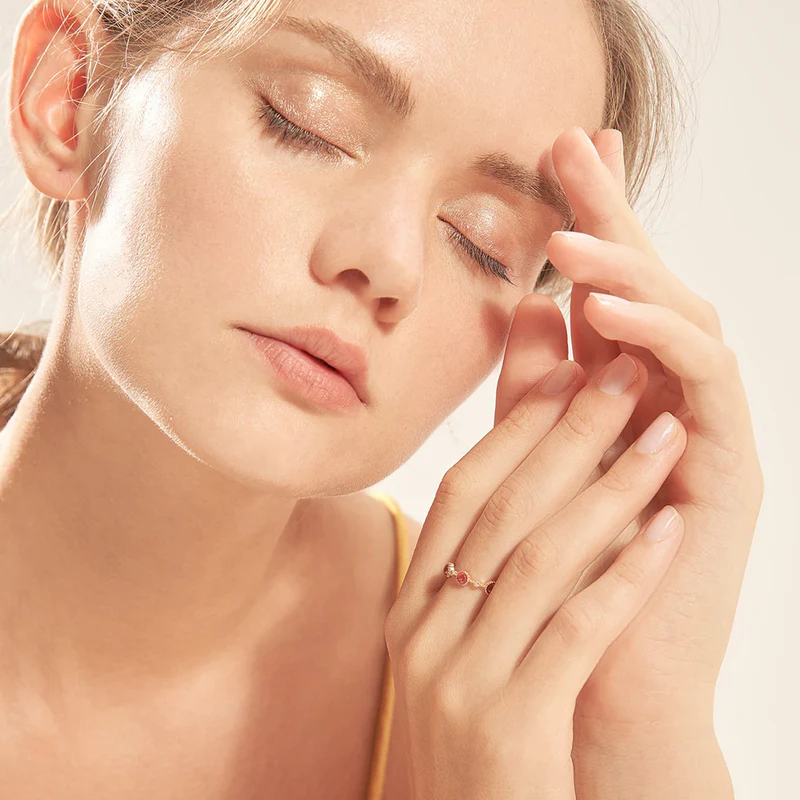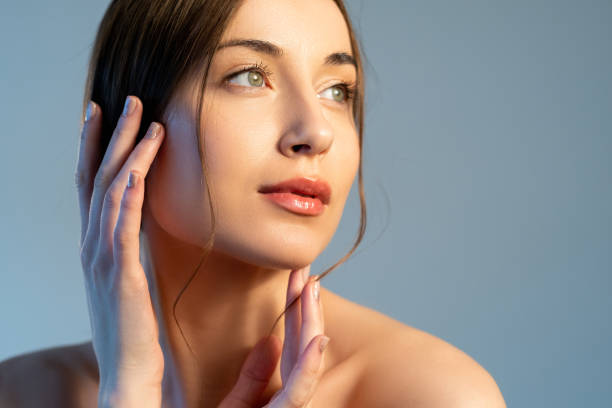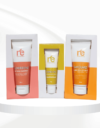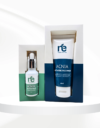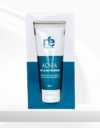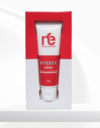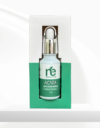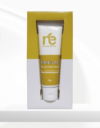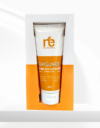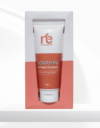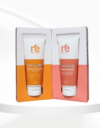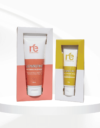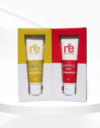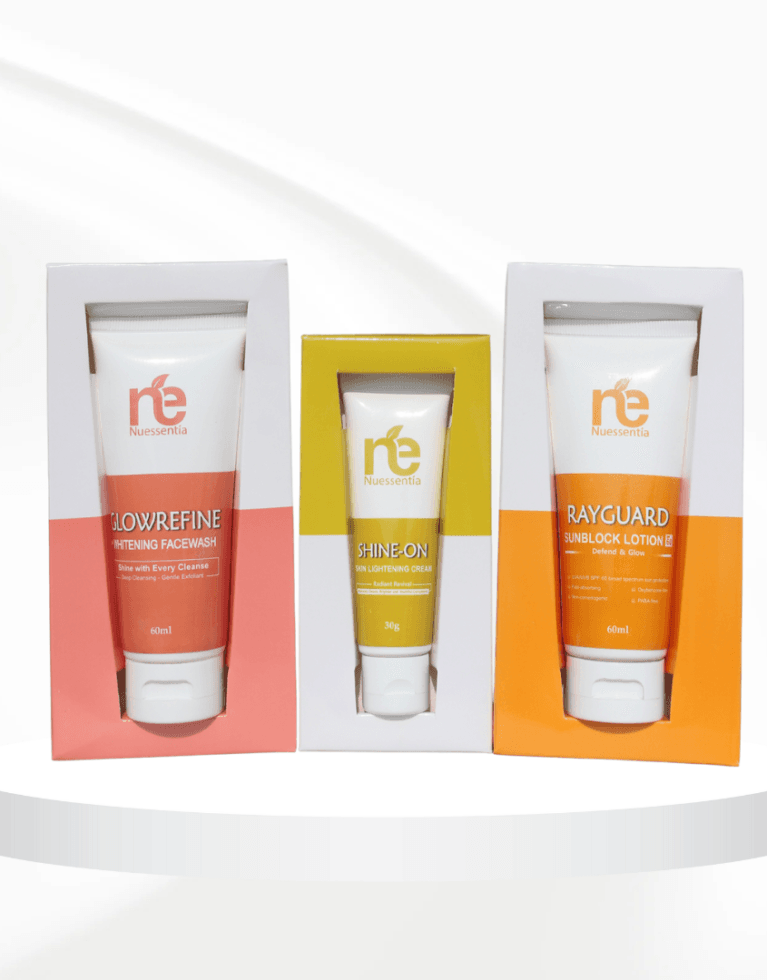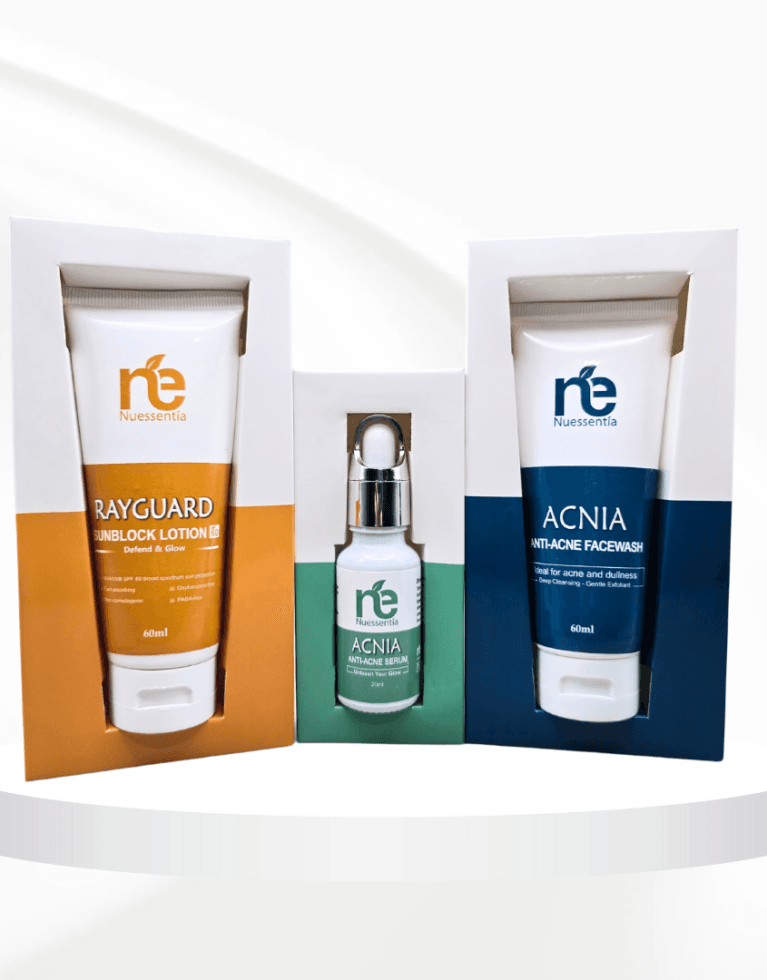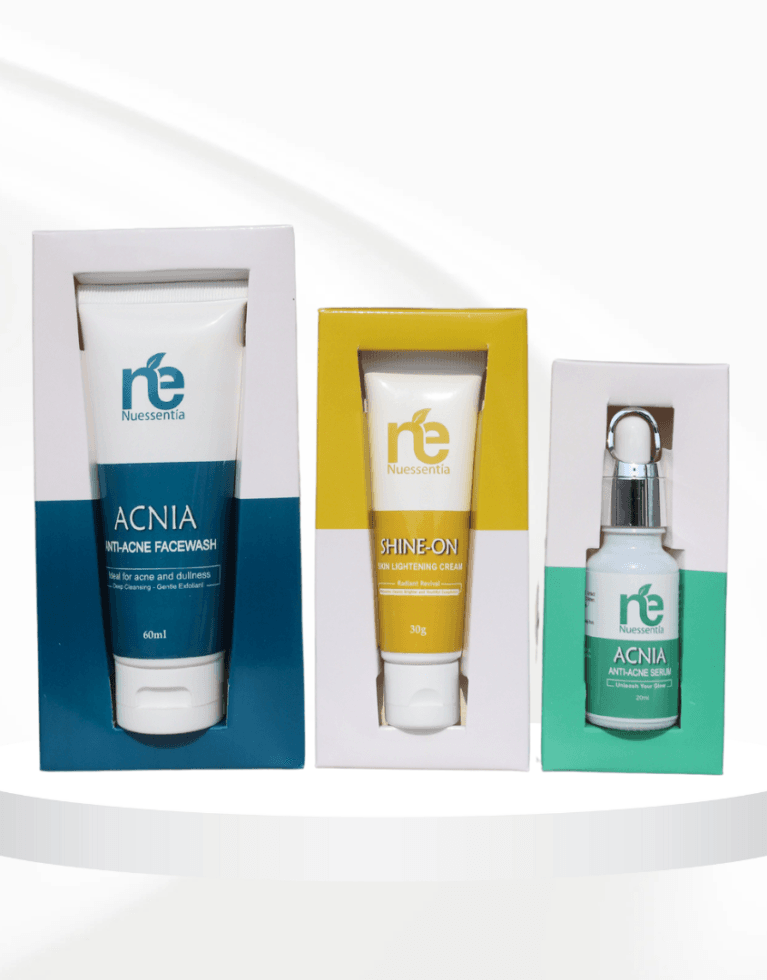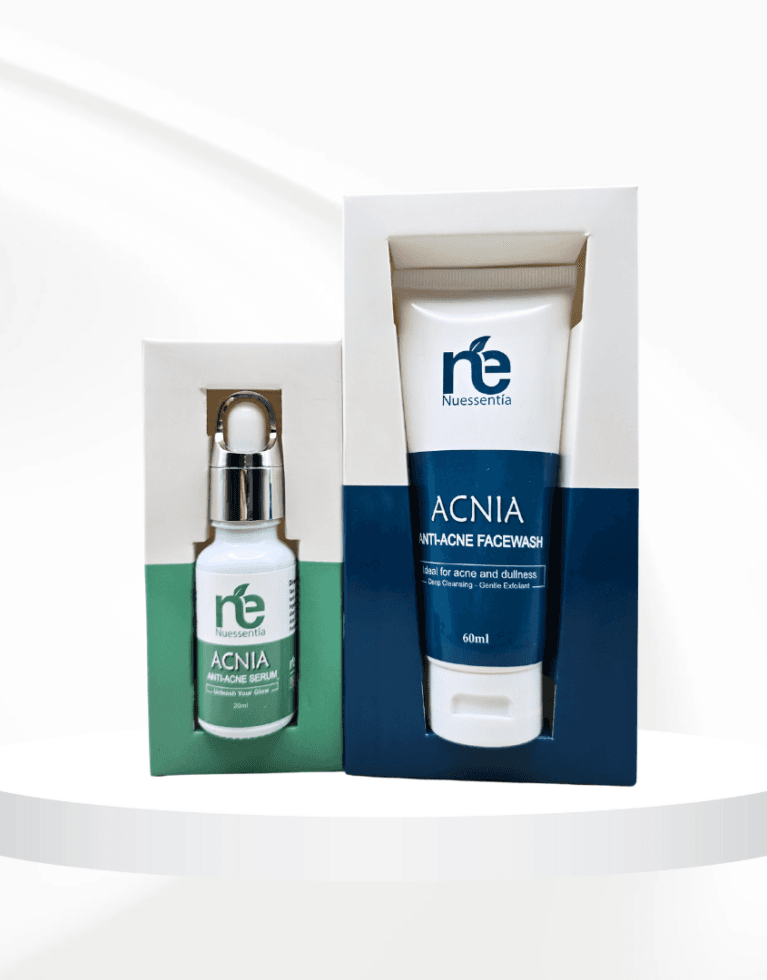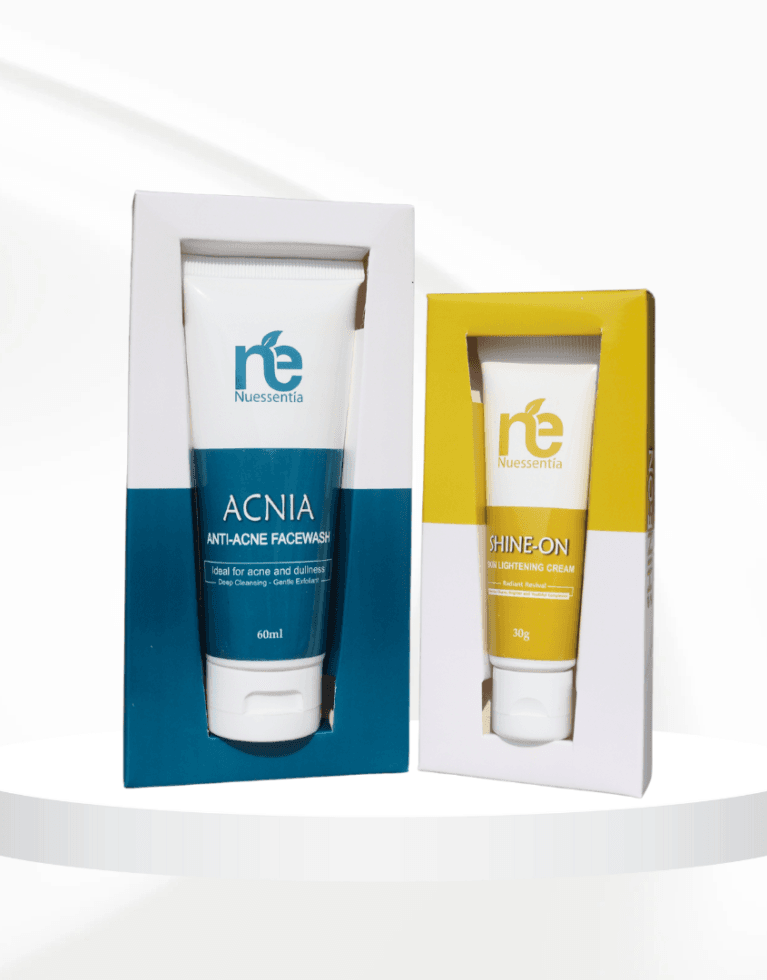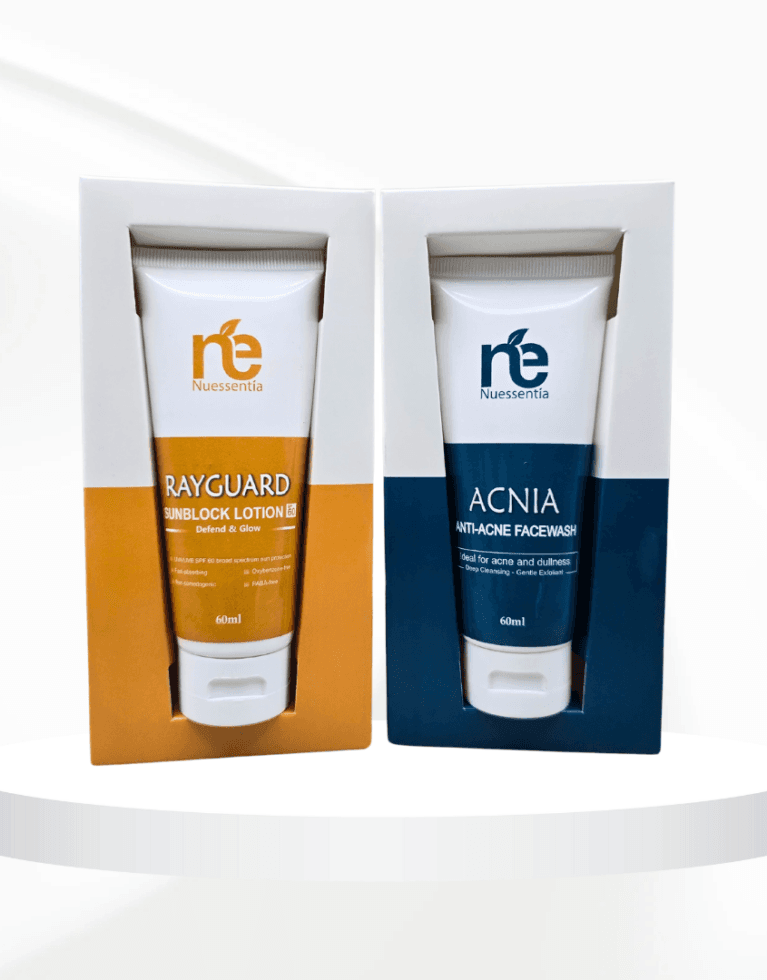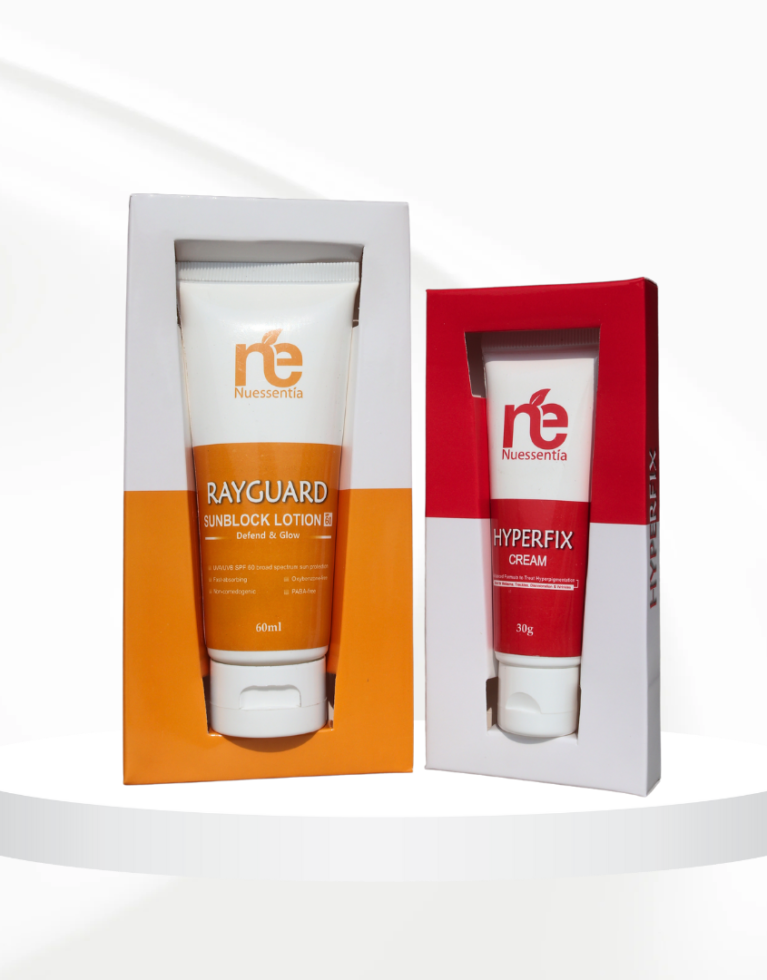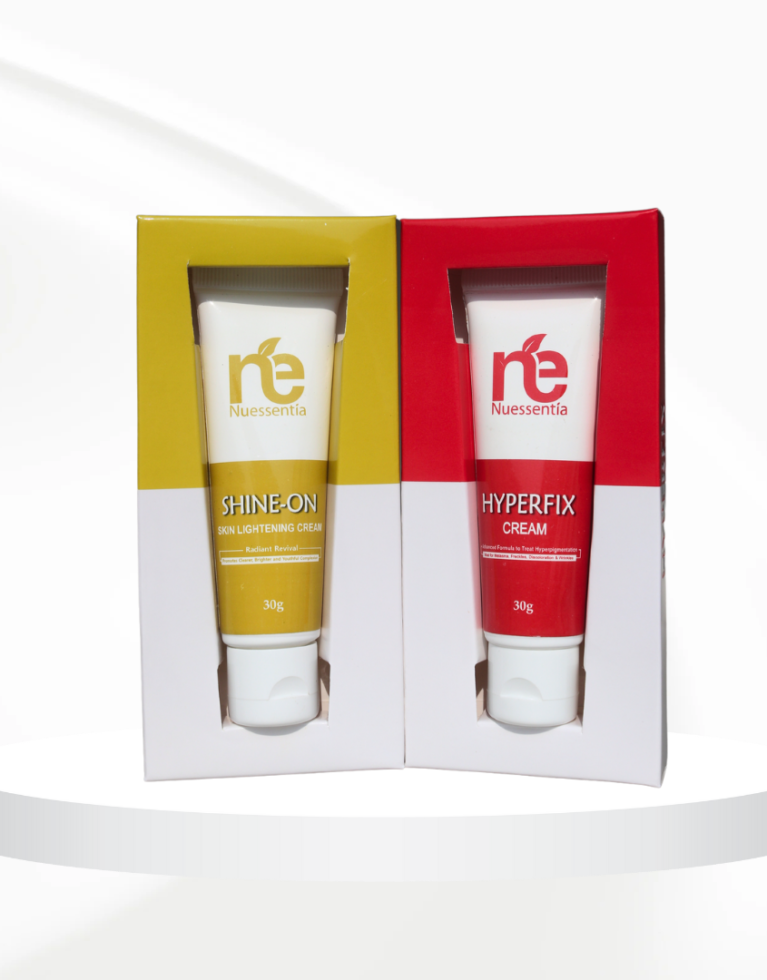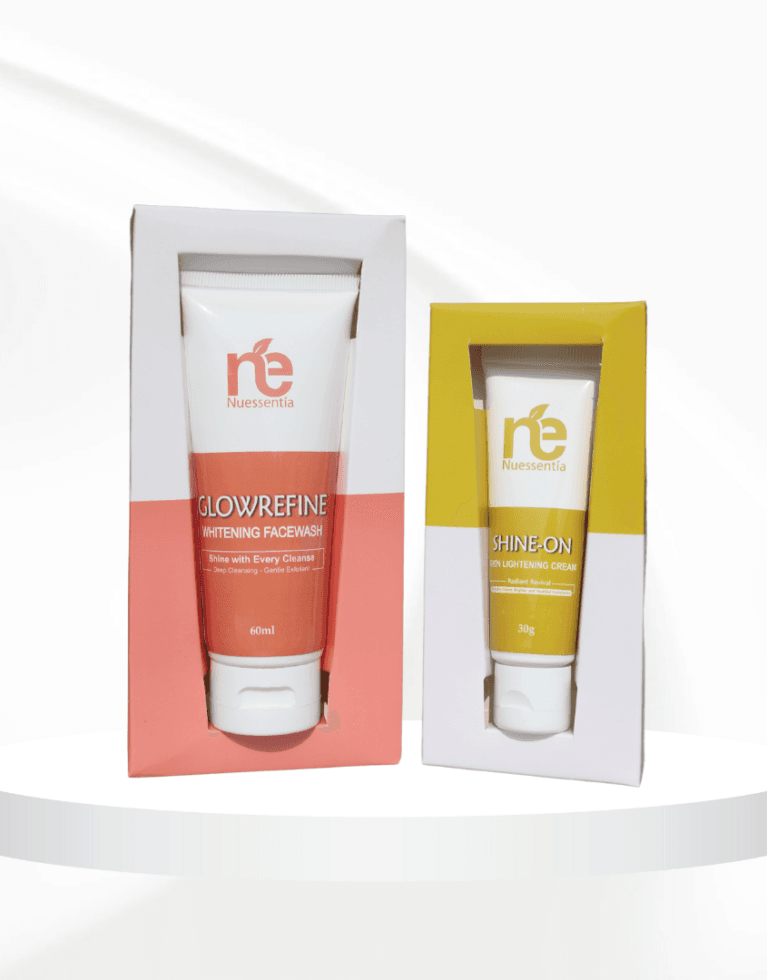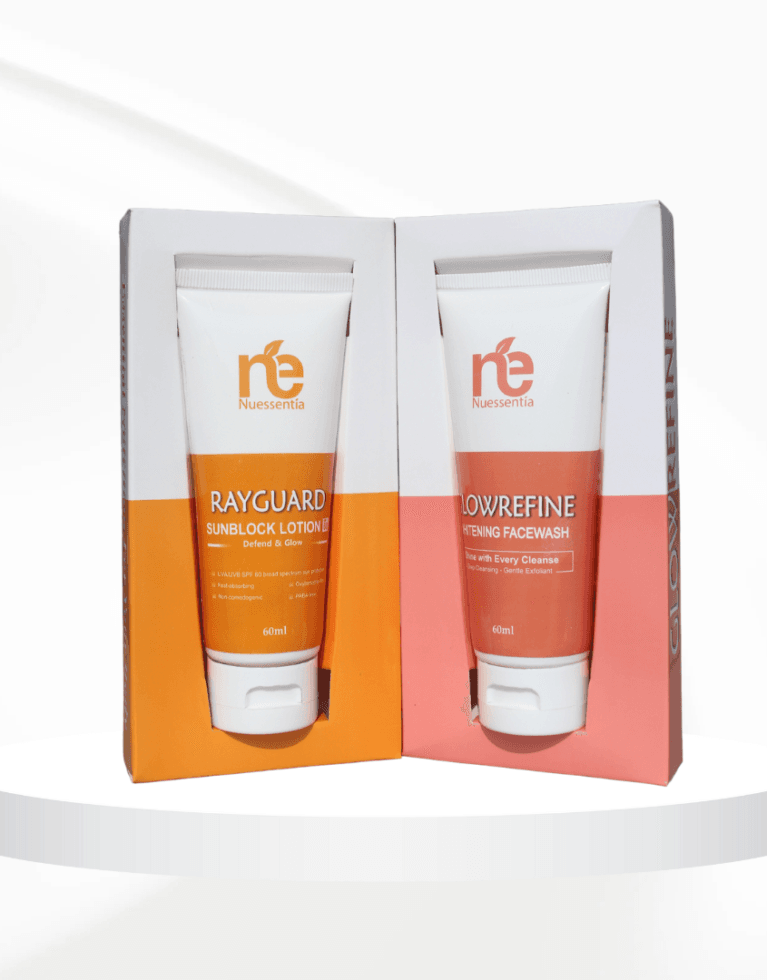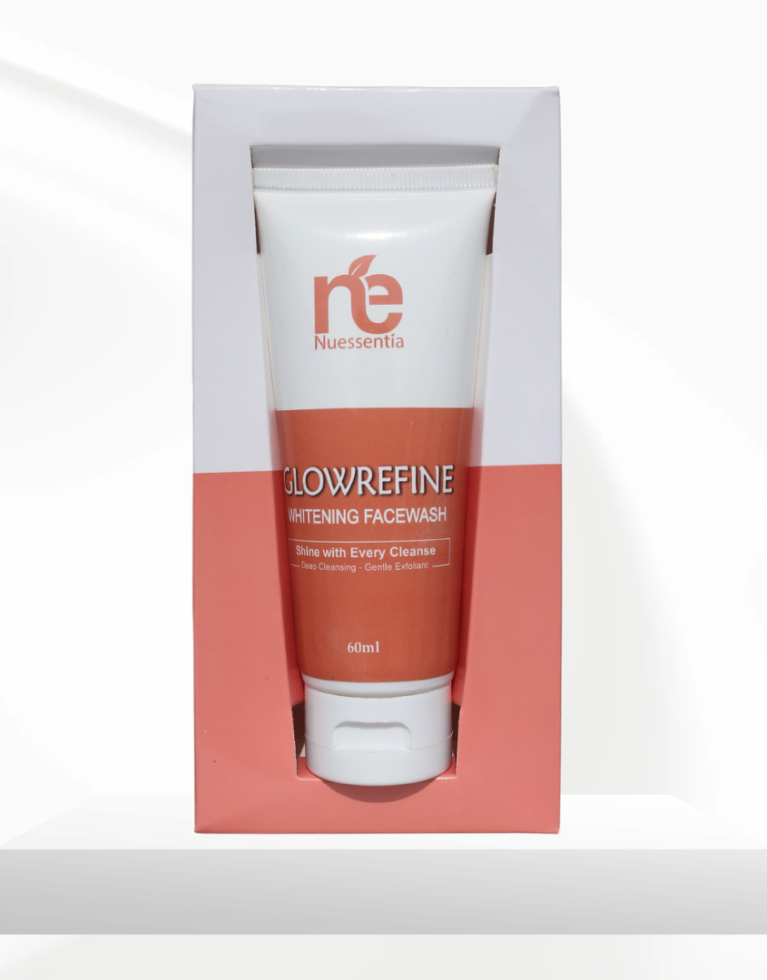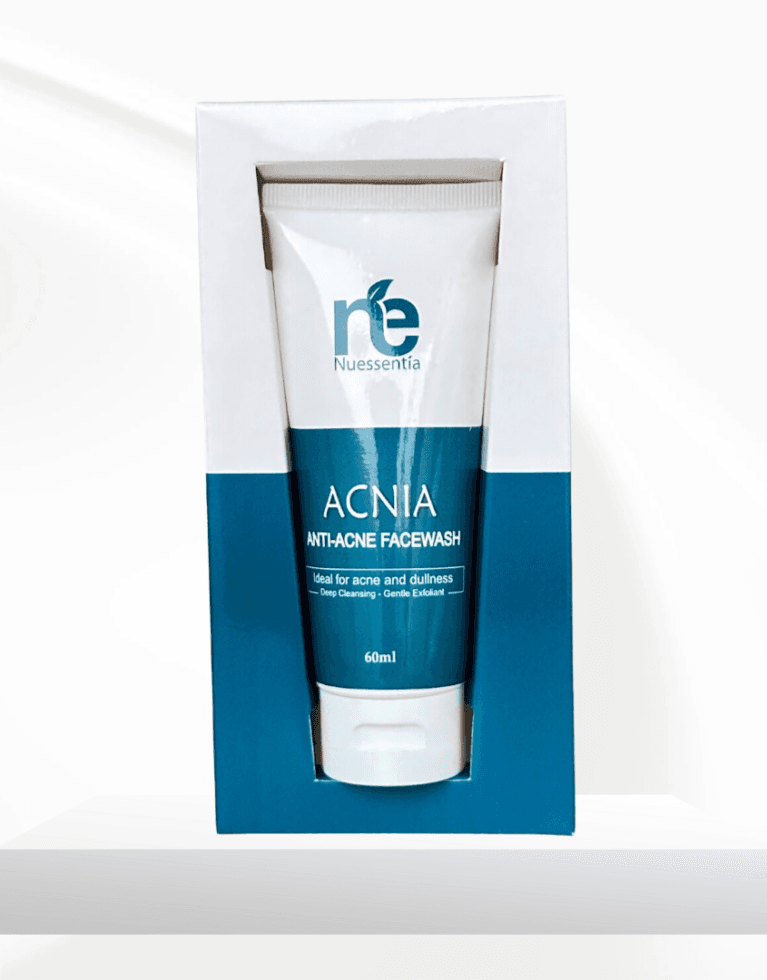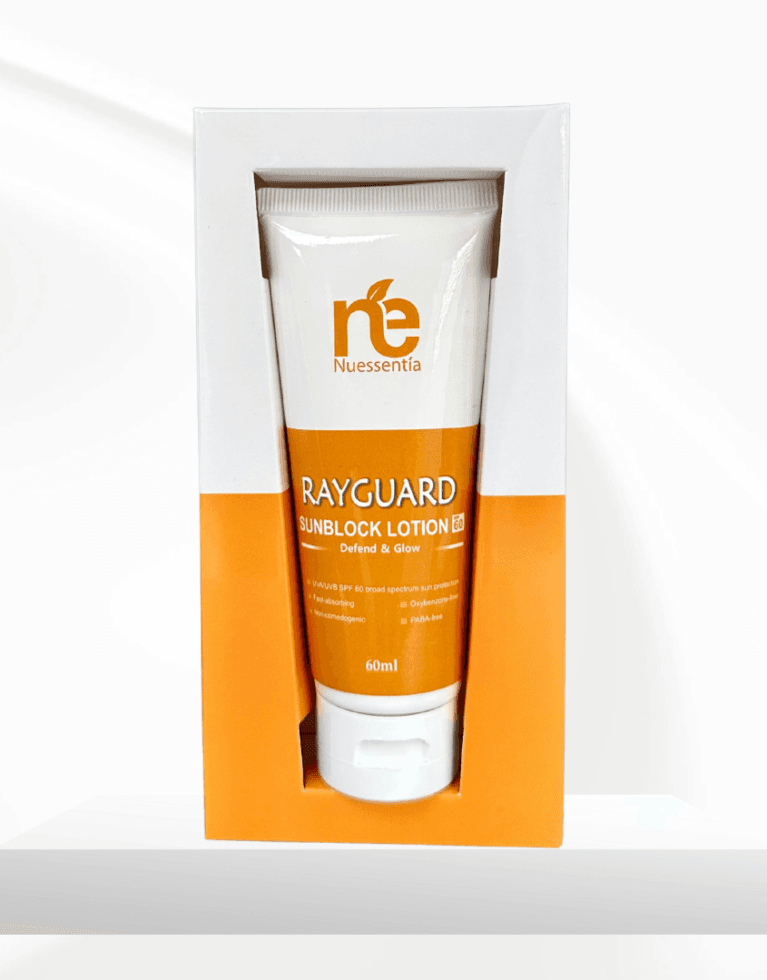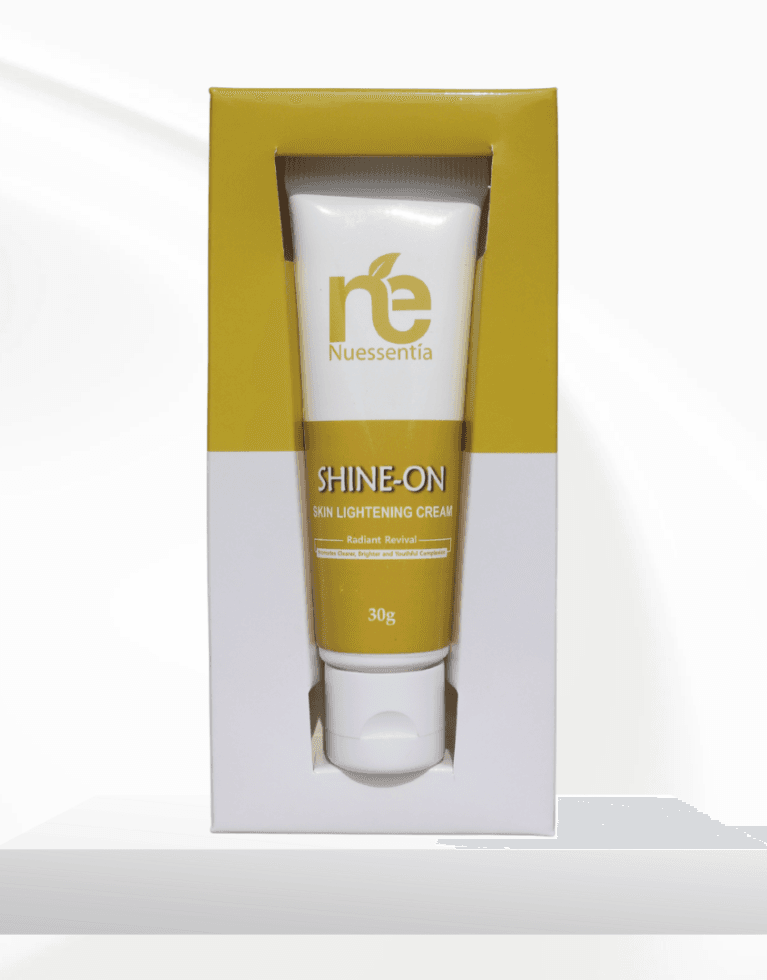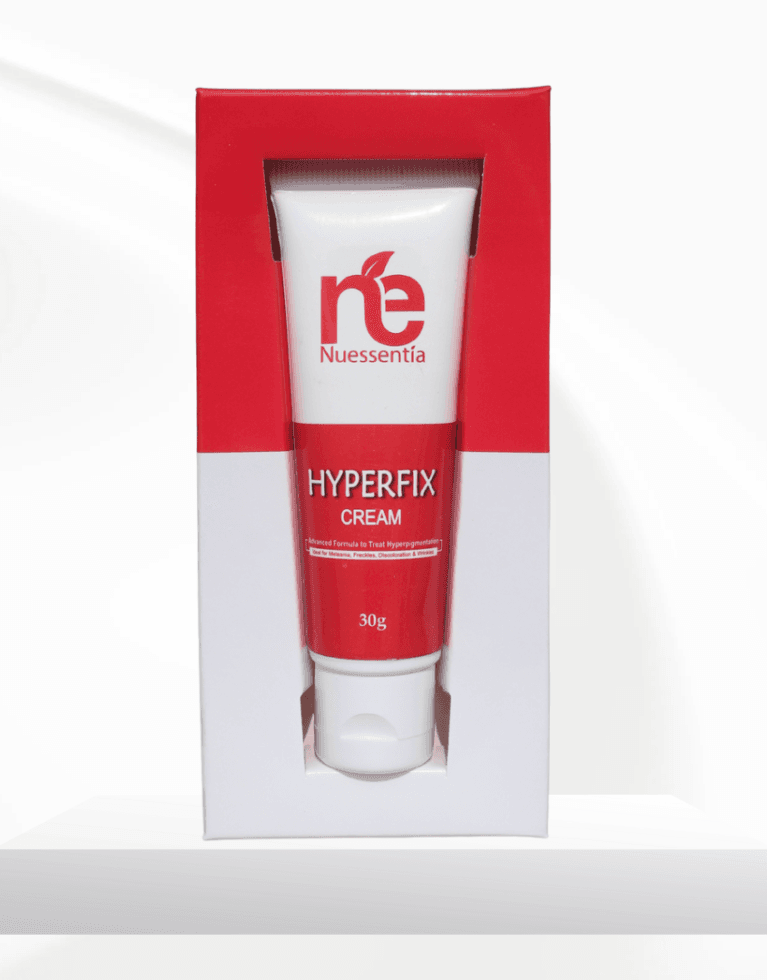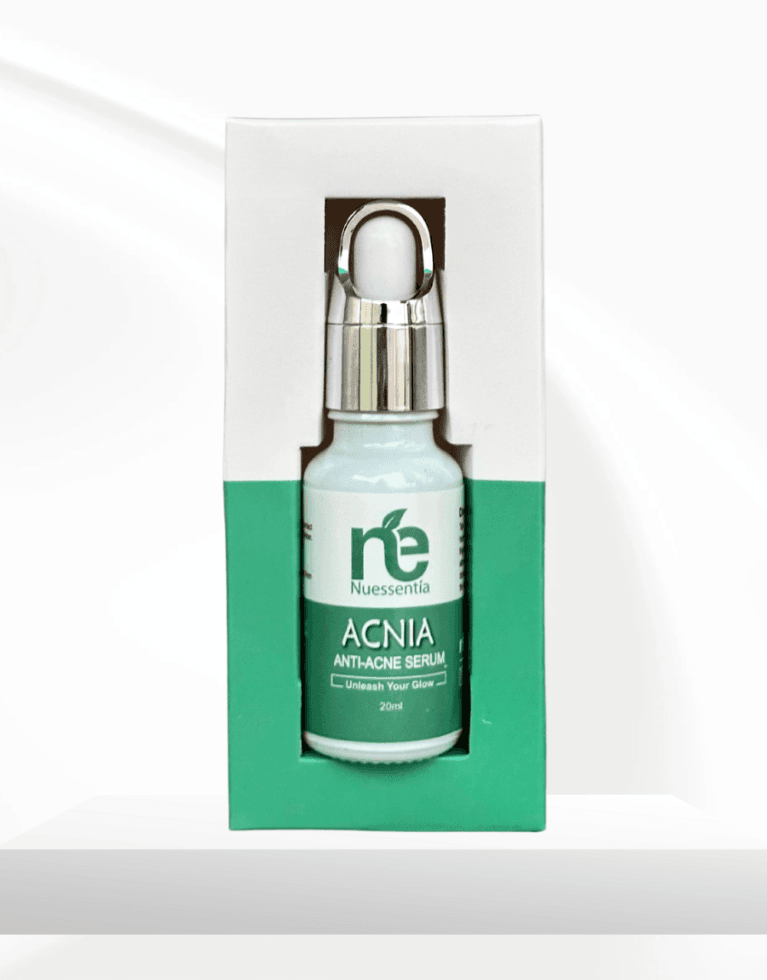Nuessentia Unveils: The Allure of Glutathione for Glowing Skin
Ever dreamt of a radiant, even-toned complexion? You’re not alone! Flawless, glowing skin is a universal desire, and the quest for achieving it has led many down the path of countless skincare products and treatments. Today, we’re here to shed light on a powerful ingredient gaining major traction in the world of skin brightening – glutathione. But before we delve deeper, let’s address the elephant in the room: is “skin lightening” the same as “skin brightening”? Absolutely! Skin lightning often carries negative connotations, implying a complete change in your natural skin tone. However, skin brightening emphasizes achieving a more even, radiant complexion by reducing hyperpigmentation and dark spots. This is the goal we’re all aiming for – a healthy, luminous version of your beautiful skin tone. Unveiling the Powerhouse: What is Glutathione? Glutathione, a naturally occurring antioxidant found within our bodies, wears many hats. It acts as a detoxifier, protects cells from damage, and plays a crucial role in maintaining overall health. But when it comes to skin, glutathione boasts a specific benefit – it possesses the potential to lighten dark spots and promote a brighter complexion. Here’s the science behind its magic: melanin, a pigment produced by our skin cells, determines skin tone. When melanin production becomes uneven, it leads to hyperpigmentation, manifesting as dark spots, sunspots, and uneven patches. Glutathione, research suggests, can help regulate melanin production by inhibiting tyrosinase, an enzyme responsible for melanin synthesis. By managing melanin production, glutathione may promote a more even and luminous skin tone. The Science Behind the Allure: Research on Glutathione for Skin Lightening While the research on glutathione for skin lightening is ongoing, some studies offer promising results. A double-blind, placebo-controlled study published in the journal Dove Medical Press found that oral glutathione supplementation led to a noticeable reduction in skin pigmentation after 12 weeks. Similarly, another study demonstrated that topical application of glutathione (in a specific form) could significantly improve skin lightening. However, it’s important to remember that research is still evolving. More studies are needed to fully understand the long-term effects and optimal dosages of glutathione for skin lightening. Beyond Brightening: Additional Benefits of Glutathione for Skin While the potential for skin lightening is exciting, glutathione offers additional benefits for overall skin health: Antioxidant Powerhouse: Glutathione combats free radicals, unstable molecules that damage skin cells and contribute to accelerated aging. By neutralizing these free radicals, glutathione may help improve skin texture and reduce the appearance of fine lines and wrinkles. Detoxification Support: Glutathione plays a vital role in detoxification, helping the body eliminate harmful toxins. This can lead to a clearer, healthier complexion, free from breakouts and blemishes. Enhanced Immunity: Studies suggest that glutathione may support the immune system, potentially aiding the skin in fighting off bacteria and inflammation. Exploring the Options: How Can You Include Glutathione in Your Routine? So, you’re curious about incorporating glutathione into your skincare routine? Here’s how you can explore this powerful ingredient: Topical Products: Many serums and creams now contain glutathione. Look for formulations with a stable form of glutathione, like reduced glutathione, that is found in our Shine-On Cream, for optimal results. Dietary Supplements: Oral glutathione supplements offer an alternative approach. However, it’s crucial to consult a dermatologist before opting for this method, as dosage and potential side effects need to be carefully considered. Natural Sources: Foods rich in cysteine, glycine, and glutamic acid, the building blocks of glutathione, may indirectly support its production within your body. Consider incorporating spinach, broccoli, avocados, and nuts into your diet. Important Considerations: Safety and Potential Concerns While generally considered safe, there are a few things to keep in mind before using glutathione: Individual Results May Vary: The effectiveness of glutathione can depend on various factors like skin type, age, and overall health. Additionally, research is still developing, and results may vary from person to person. Consult a Dermatologist: Especially if you have any underlying skin conditions or are using other medications, it’s crucial to consult a dermatologist before incorporating glutathione into your routine. They can guide you on the safest and most effective approach based on your specific needs. Potential Side Effects: Oral glutathione supplements may cause mild side effects like stomach upset or diarrhea. Topical applications may lead to skin irritation in some cases. Be sure to discontinue use if you experience any adverse effects. The Takeaway: Embracing a Holistic Approach to Glowing Skin Glutathione offers a fascinating glimpse into the world of natural skin lightening ingredients. While research is ongoing, the potential for achieving a brighter, more even complexion is certainly promising. However, remember that consistent sun protection with a broad-spectrum SPF is essential for maintaining long-lasting results and preventing future hyperpigmentation.





